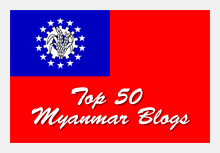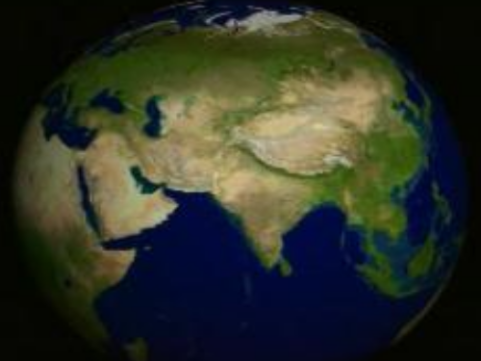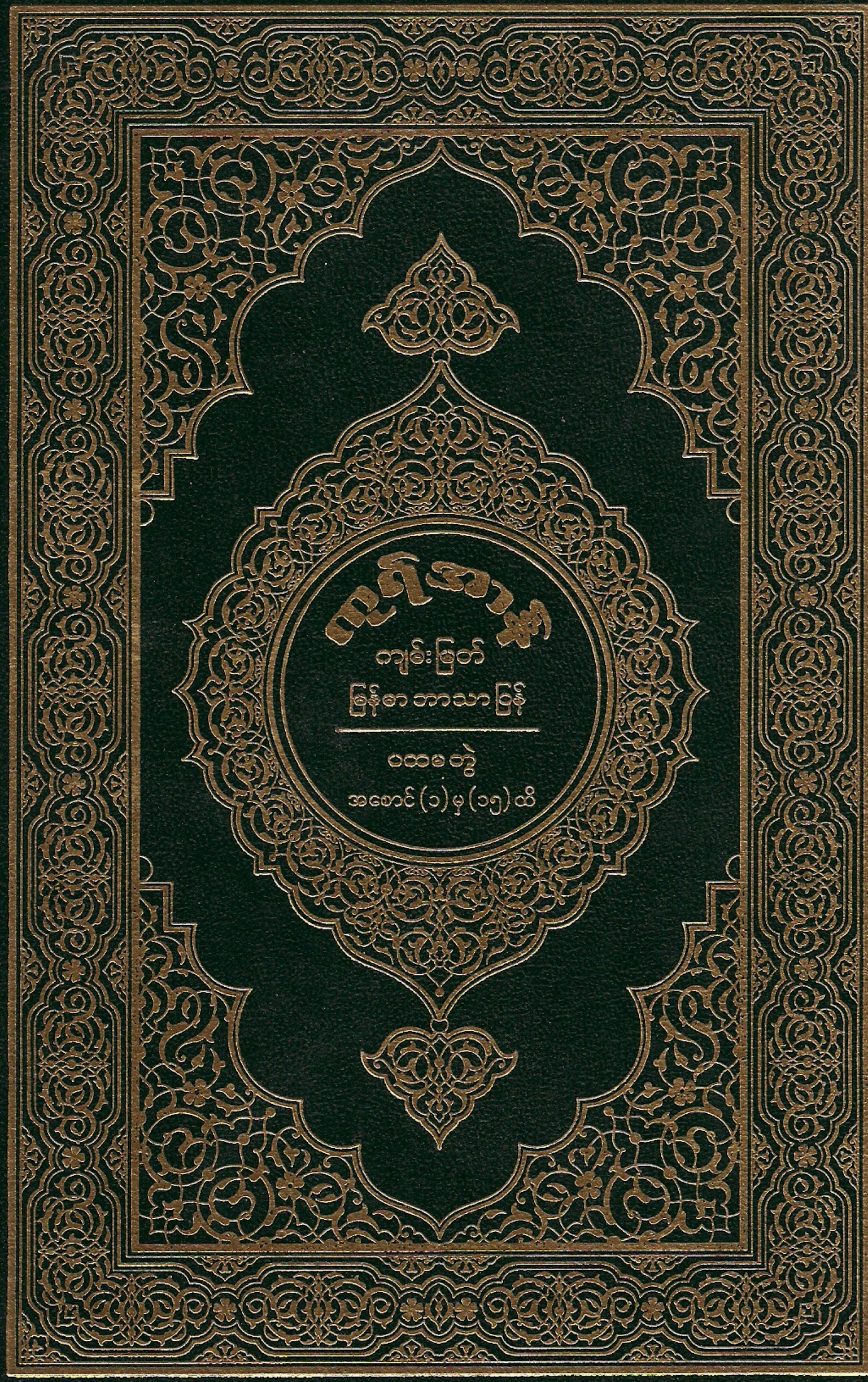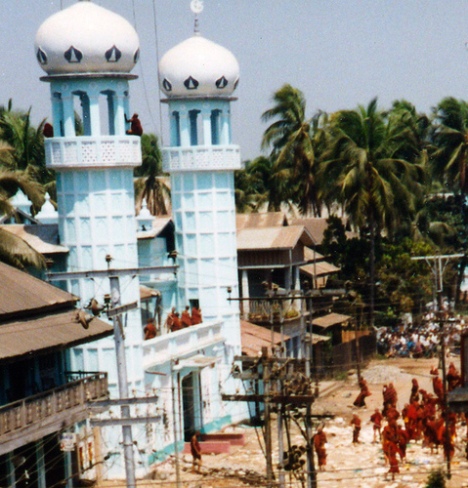General Aung San’s Acceptance of migrants as brethren
“I want to address the Indians and Chinese residing in this country. We have no bitterness, no ill will for them, or for that matter for any race and nationality in the world. If they choose to join us, we will welcome them as our own brethren. The welfare of all people of this country irrespective of race or religion has always been the one purpose that I have set out to fulfill. In fact it is my life’s mission.”
I recognize both the virtues and limitations of pure nationalism, I love its virtues, I don’t allow myself to be blinded by its limitations, though I knew that it is not easy for the great majority of any nation to get over these limitations. In so far as nationalism encourages us to love our people and love others. In so far as nationalism inculcates in us a sense of national and social justice which calls upon us to fight any system that is oppressive or tyrannical both in our country and the world, there I am completely with nationalism.
I believe in the inherent right of a people to revolt against any tyranny that people may have over them. History has amply demonstrated the right of a people to its own freedom, and that once it is denied to them, even in the case of the peoples who belong to the same stock. There is therefore nothing wrong in the aspirations of a nation if it wants to regain the freedom that is its birthright and attempts to have it. Every nation in the world must be free not only externally (i.e., free from any foreign rule) but also internally.
We cannot confine the definition of a nationality to the narrow bounds of race, religion, etc. Nations are extending the rights of their respective communities even to others who may not belong to them except by their mere residence amongst them and their determination to live and be with them. I am glad to know that you regard yourselves as nationals of this country. So far as I am concerned, I am perfectly prepared to embrace you as my own brothers and sisters.
Reverend Sanghas! You have a tremendous role to play. This is the highest politics which you can do for your country and people. Go amongst our people, preach the doctrine of unity and love; carry the message of higher freedom to every nook and corner of the country, freedom to religious worship, freedom to preach and spread the Dharma anywhere and anytime, freedom from fear, ignorance, superstition, etc., teach our people to rely upon themselves and re-construct themselves materially, spiritually and otherwise. You have these and many more noble tasks before you.
Every student of social and political science knows very well that such slogans as race, religion, language do not alone constitute nationalism. There are one or more races in almost every country. Nowadays, we have different religions being embraced by members of the same nationality.
What then constitutes nationalism? The main factor is the having to lead together one common life sharing joys and sorrows, developing common interests and one or more common things like racial or linguistic communities, fostering common traditions of having been and being one which give us a consciousness of oneness and necessity of that oneness.
Race, religion, and language are thus by themselves not primary factors which go to the making of a nation but the historic necessity of having to lead common life together that is the pivotal principle of nationality and nationalism.
Nowadays, with the increasing mutual intercourse of nations, there is such a provision in many of the constitutions of the world for naturalization of foreigners. But it is in history that opportunist political leadership taking advantage of the strong national sentiments of the people may try to exploit the nationalism of the people for their selfish individual or group interests. We must be careful of such exploitation of nationalism. For then racial strives and bitterness will be fomented and fostered among us by interested parties in order to divert our attention from the main objective.
Some of us have been going still about the same old way of ‘dirty’ politics. But is politics really ‘dirty’. It is not politics which is dirty, but rather the persons who choose to dirty it are dirty.
Some of them can be read in Bo Gyoke’s speeches.
See my article in Burma Digest also.
Jessicah Curtis
Reprint from, July 24, 2007 (DVB)—There have been some fantastic campaigns launched in the past five years or so to curb the discrimination Burmese migrants face when relocating to other countries.
Refugees, economic migrants and those seeking an education or a new life in a third country from Burma are often the targets of racism, psychological and physical abuse and social persecution. Thankfully, organisations such as the MAP Foundation are working to try and address these issues.
But the acceptance of migrants should go both ways and people travelling to Burma from other countries to seek a better life for their families should be treated with the same respect we demand for Burmese migrants leaving.
Unfortunately, this is often not the case. I can’t count the amount of times I have been told that the Chinese, Indians, Bangladeshis and Rohingyas (outrageously still referred to as Kalas in every day conversations) are not welcome in Burma.
These comments are particularly concerning when they come from people living in Thailand or those who have had the chance at a new life in the US or Europe (Note: added by SOA:and from a very racist Rakhine prof. in Japan. May be he should be kicked out from Japan. As there were reports that Daw Suu was coached by him, we are worried about Daw Suu’s opinion on the late migrants into Burma. Early migrants; Pyu, Kanyan, Thet etc are already well established in Myanmar. That racist Rakhine prof. was part of that early migrant mixed with Marghs or Buddhist Bengladeshis migrated into Rakhine) because, surely, they should respect the desire for the best of opportunities life has to offer.
Despite the fact that the political, economic, security and social conditions in most parts of Burma are despicable, for some people life in Burma presents opportunities that cannot be found elsewhere. Let’s start with Indian migrants as an example. Many came to Burma in the 19th century when the economic conditions in the country were far better than they were in India. These migrants, along with many of the Chinese immigrants who came at roughly the same time, made an important contribution to Burma’s economy and have become as much a part of the social fabric of the country as anyone else. But they are still shunned in the streets of Rangoon if their skin is too dark or their jobs considered too menial. Their children are often abused, taunted and turned away from school. No one wants to do business with a ‘Kala’ let alone talk to or make friends with one. This is quite clearly outrageous, as is the military’s refusal to consider Rohingyas citizens of Burma despite the fact that many families have lived in the country for generations. Even people who can not accept the term ‘Rohingya’ should at least respect the need for these people to be accepted in the country they have called home for decades. Racism exists in every country but with more than one million Burmese people living, working and studying in Thailand alone, it can’t be too much to expect that the rights of other migrants be appreciated.
Perhaps we should start printing MAP’s ‘No migrant is illegal’ t-shirts inside Burma and see what kind of response we get. No doubt Burma’s ethnic Chinese, Bangla, Indian and Thai citizens would appreciate a break from the derogatory comments and discriminatory policies they are subjected to on a daily basis.
As a Burmese Muslim, I sympathised Rohingyas and had supported and helped them personally and through my contacts in NGOs and Government official friends. But as they wish to be different from the rest of Burmese Muslims, I tried to leave them alone, to be able to reap their fruits of their struggle themselves. I hereby selected some letters in “Let’s Talk” page of DVB regarding Rohingya just to see the different points of views on all the mixed blooded people and Muslims in Burma.
Rohingya:
What’s in a name? http://english.dvb.no/letstalk.php?id=12
Debate has raged for years over whether or not Muslim ‘Rohingyas’ have a genuine claim to status as one of Burma’s many ethnic groups. Even academics and historians cannot agree over whether evidence points to ancient Rohingya roots in Arakan State or whether they are simply migrants from the Sub-continent who have been in Burma for less than a century. But since there is no consensus on the issue based on historic data, it might be time to ask the question of whether the ancient history of their presence in Arakan State matters or not. What do you think? Do you accept Rohingyas as a Burmese ethnic group? Does it matter how many centuries or generations they have lived in the country? Should they be accepted as Burmese regardless of their ancestry? Since the status of Rohingyas continues to be such a divisive issue for many Burmese people, how do you think the debate on the issue can move forward from its current stalemate?
Let’s talk! DVB
To all and special to Shin Shin(Thailand), I gree with u ,Rohingya’s face were not Burmese,so could we decide Burma can live people only Burmese Face? If so could we fair? What about Burmese in abroad(currently those Burmese had the right residence status and citizenship rights in their respective countries)What about Chinese face people living in Burma? I am not accept Rohingya as Burma’s ethnic groups but totally accepted they are Burma nationality.
Ko Maung (Singapore)
To the Singaporean residents who have answered this question — if you proposed deportation on the basis of DNA in Burma, what would you propose happen to all residents of Singapore, including yourselves?
In the history of the nation state it has never been the norm that nationality be dependent on ethnicity. And I hope you feel that that everyone should work to prevent the past tragic consequences of making ethnicity a precondition for exclusion of individuals from participation in a nation s society.
This was the case in Germany during the Nazi regime, and the effect was to impoverish the German nation, and to drive talented individuals capable of helping their nation to neighbouring countries. Which was to those states great benefit. Or is this perhaps the intention of your argument — to strengthen Burma s neighbours?
Simon (Belgium)
In an “Ideal World” everyone, regardless of its color, race, culture or religion should be able to live, peacefully, alongside each other. The only problem is…..after sometime, people have tendency to segregate among the communities, which results in misunderstandings and hostilities. When such things happened only the “educated and wise” can understand the distructive nature of violence against fellow members of community. Poverty and illiteracy, fanned by religious extremity , creates more violence and terror among communities. Therefore, we have to be very careful and learn lessons from South of Thailand, Sri Lanka, Middle East and Philippines etc.
Nay Nwe Oo (Myanmar)
Even thousands of refugees from Burma have been granted citizenship and permission to settle in different countries. Why not Muslim in Myanmar? Weather they are from under the ocean or above the sky, we all know that they are human. Universal Declaration of Human Right was signed not just for the us, but for them too.
Thanks.
Peter peter (Norway )
If someone said NO, what about the Wa who look like Chinese. The relation of SPDC with Chinese is better than it with Bangladesh and its relation is like father and son. kyaw kyaw (Thailand)No more 20 century. We have to remember that the world is changing very fast. As my point of view, no matter what religious, race or color should be equal. No discrimination please!! I always heard on Rohingya about Direct discrimination occurs because of their racial or ethnic origin, religion or belief, disability, age or sexual orientation.
Lu thar Chin Sanar pa!
With Mitta,
May Zin Moe (USA)
It will be sad story for Burma if we say Rohingya should be sent to Bangladesh or they are not Burmese or Arakanese because they are muslim or they looks Indian. If we say so, we should call ourselves hypocrates.
Zaw Zaw (India)
Should we decide the fate of Rohingya on their face, colour and religious belief?. If yes, then what about white Amercan, White Australian?. They should go to Europe.
Maung Lay (Burma)
No borders of any countries in this world is devided according to the people face or religion. It is geographic demarcation. Myanmar Border with China has alot of Chinese face looks people so as border with India or Thailand similar faces to the otherside of border. All those areas people, we accepted as nationality of Myanmar. So as border with Bangladesh we have people like Bengali. This is common in every border regions of all countries in the world. We have to accept the realities. We simply cannot do discrimination due to their religious beliefs. We are in 21st century. Why only issue arises with those Rohingyas? I think we just discriminate them to play a political game with the Rakhine Bhuddists.
Maung Maung (Myanmar)
Filed under: Burma, Burmese Indian Muslims, Burmese Muslims, Crimes against Humanity, Democratic activists, Dialogue, English Article, Ethnic Cleansing, Genocide, History, Human Rights, Individual Freedom, Islam, Islam in Myanmar, Law, Myanmar, Myanmar Military, Politics, reconciliation, Refugees, Religion, SPDC, UNHCR, War Crimes | Tagged: Burma, Burmese History, Burmese Opposition, Corruption, Daw Aung San Suu Kyi, Dictators, Ethnic Minorities, Military Junta, Myanmar, NLD, Racial Discrimination, SPDC |












+(Small).jpg)


[…] General Aung San’s Acceptance of migrants as brethren […]
[…] General Aung San’s Acceptance of migrants as brethren […]